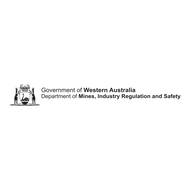Independent report identifies community engagement as crucial to success of South West Hub project.
| Date: | Wednesday, 17 December 2014 |
|---|
The project could assist lowering WA's carbon footprint by reducing carbon dioxide emissions.
Department of Mines and Petroleum (DMP) Carbon Strategy Co-ordinator Dominique Van Gent says the South West Hub is at the forefront of feasibility projects looking to employ CCS technology.
“The G20 discussions in Brisbane highlighted the importance of CCS technology in reducing carbon emissions in the future, and the South West Hub could assist the Western Australian Government to meet its emissions reduction targets,” Mr Van Gent said.
The South West Hub project is a government-industry partnership investigating the feasibility of storing carbon dioxide deep underground, as part of a suite of solutions required to reduce greenhouse gas emissions and combat climate change.
Mr Van Gent said WA could soon be home to the two largest commercial CCS projects in the world if the South West Hub proves to be a commercial option. Chevron’s Gorgon liquefied natural gas project will incorporate the world’s largest commercial CCS project when it goes into production next year.
An independent academic paper released last week has identified community engagement as vital to the South West Hub’s success.
The paper, ‘Lessons From Project Level Community Engagement’, was written by former CSIRO social researcher Peta Ashworth who is a specialist in the introduction of new energy technologies into communities.
“CCS is a proven technology used around the world which can lower our carbon footprint, but we need the support of the community to investigate these options,” Mr Van Gent said.
“Since beginning desk-top studies in 2007, the DMP has been working closely with the local community in Harvey and Waroona through various stages of the project to ensure community involvement and encourage support.”
Community members provide the South West Hub feasibility project with access to land and local businesses supply goods and services required for various stages of the project.
Community members attend information sessions to keep up-to-date with the project and research outcomes, and a dedicated land access team works with landholders to ensure they are looked after and their concerns are addressed.
The most recent community event was held last week when the project team provided briefings on both the results of the 3D Seismic Survey, which was conducted early in 2014, and on the up-coming drilling program.
“DMP staff members in Bunbury work closely with the industry Joint Venture partners and are available to answer community questions,” Mr Van Gent said.
“They provide regular local briefings and release updates and detailed information about scientific aspects of the project.”
‘Lessons From Project Level Community Engagement’ is the outcome of a research project funded by Australian National Low Emission Coal Research and Development which was established to provide independent and objective analysis, data and expertise to effectively facilitate carbon capture and storage projects.
The report is available on the department's website www.dmp.wa.gov.au/ccs and at www.anlecrd.com.au

